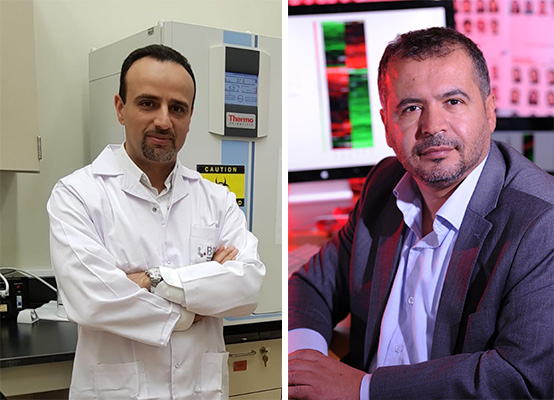Researchers at Weill Cornell Medicine-Qatar (WCM-Q) made new discoveries that could help explain a problem that has perplexed scientists for years – why some obese people get Type-2 Diabetes while others don’t?
The multi-institutional team of researchers, led by Dr Nayef Mazloum of WCM-Q, analysed blood samples from 107 people who are residing in Qatar and identified significant differences in the metabolites of those who were obese but insulin sensitive and did not have Type 2 Diabetes compared to equally obese individuals with insulin resistance and/or Type-2 Diabetes.

Dr Mazloum, Assistant Professor of Microbiology and Immunology, said that one of the key characteristics of Type-2 Diabetes is reduced insulin sensitivity, which is very strongly associated with obesity.
However, some individuals who are obese somehow maintain their insulin sensitivity and therefore have a far lower risk of developing Type-2 Diabetes and associated complications. In this study we were able to identify for the first time a number of individual metabolites that are involved in helping some obese people maintain insulin sensitivity – we hope that it may eventually be possible to use these discoveries as the basis for developing new diagnostic tools and even therapeutic medicines.’
Metabolites are a wide and varied group of molecules involved in the vast complex of chemical reactions that together make up the human metabolism. The research identified metabolites involved in the metabolism of phospholipids, a type of fat found mainly in the membranes of cells.
A total of three phospholipid metabolites were identified by researchers as ‘potential novel biomarkers’ which, if present, appear to indicate that an obese individual may be resistant to Type-2 Diabetes. Of the 107 subjects in the study, 32 were control subjects of healthy weight, while 75 were obese, including 20 who were obese and insulin sensitive, 41 who were obese and insulin resistant, and 14 who were obese and had Type-2 Diabetes. Majority of subjects in the study are Qatari nationals.
The team was comprised of researchers from WCM-Q, Qatar Biomedical Research Institute, the Biomedical Research Center at Qatar University, the Royal College of Surgeons in Ireland (Bahrain), and the University of Groningen in the Netherlands. The research, titled ‘Metabolic signature of obesity-associated insulin resistance and type 2 diabetes’, has been published in the Journal of Translational Medicine.
Dr Khaled Machaca, Senior Associate Dean for Research, Innovations and Commercialisation at WCM-Q said that Type-2 Diabetes is one of the most pressing health concerns facing Qatar and the wider region, with more people developing the condition, at earlier ages. He said that the research has opened up promising new avenues to identify and validate biomarkers that would, with further studies, hopefully improve the ability to prevent and treat Type-2 Diabetes and associated conditions.
To learn more about the various research projects undertaken at WCM-Q, visit qatar-weill.cornell.edu.





